I’ve slowed down the production schedule of The Farmer and the {Florist} Interview series to focus on other projects of late. So, although I won’t be posting as many interviews in the coming months, every once in a while I plan to profile a few of the fascinating figures that are helping to define and shape the seasonal flower movement.
Today I’m delighted to introduce one of those emerging leaders: Fivefork Farms. I first stumbled across their Instagram feed @fiveforkfarms a year or more ago and have been hooked ever since. The photos they post are phenomenal and their story is equally as fascinating: Fivefork Farms is a flower farm collaboration of the five Lam siblings, ages 28 to 35. Located on 38 acres in Upton, Massachusetts, the Lams farm the same land previously occupied by four generations of the Eli Whitney family. I asked the fine folks at Fivefork Farms to share a little bit more about their amazing little operation.
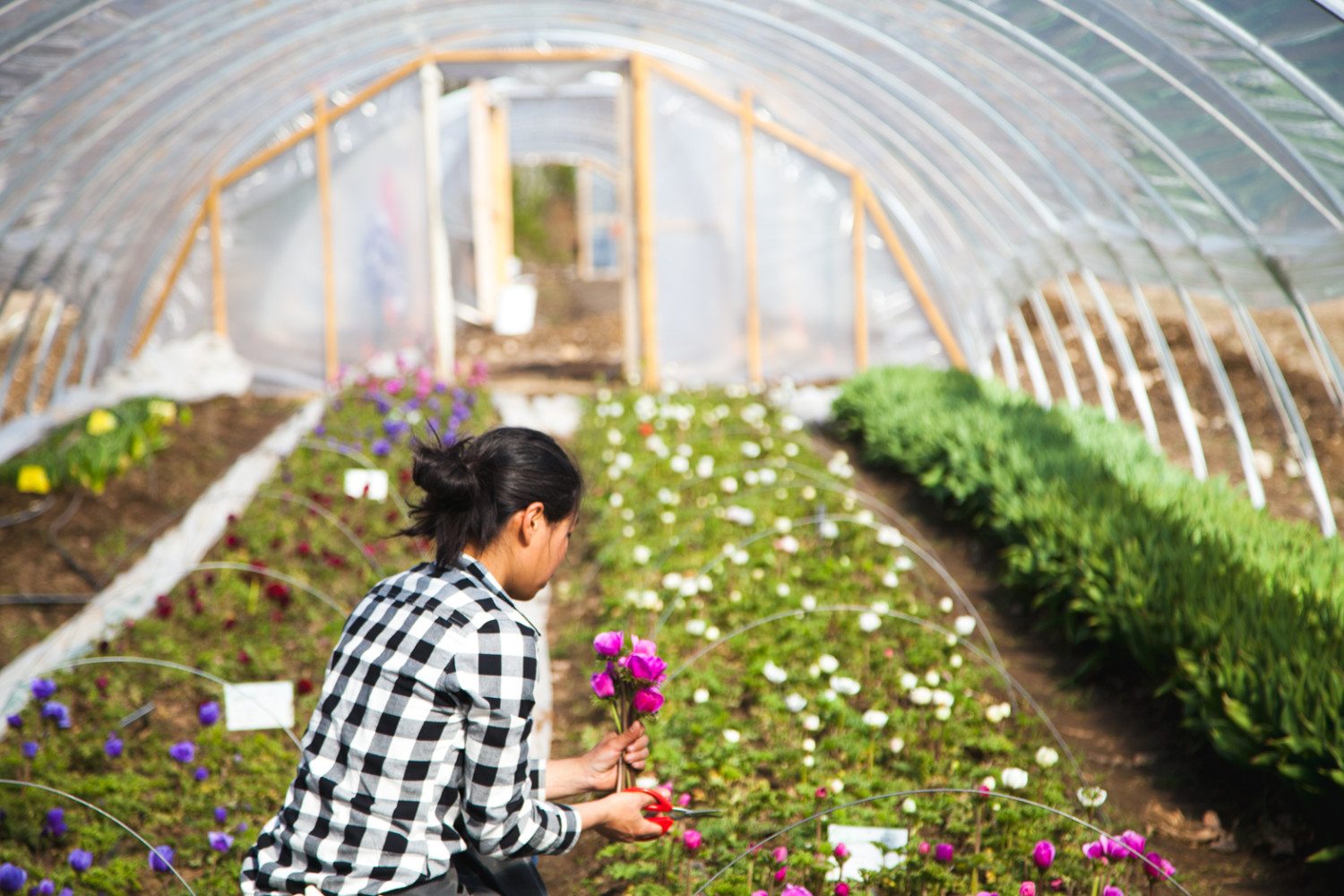
Erin: Thanks, Grace, for agreeing to do the interview on behalf of your family! First, can you tell me a little bit more about the historic nature of your farm?
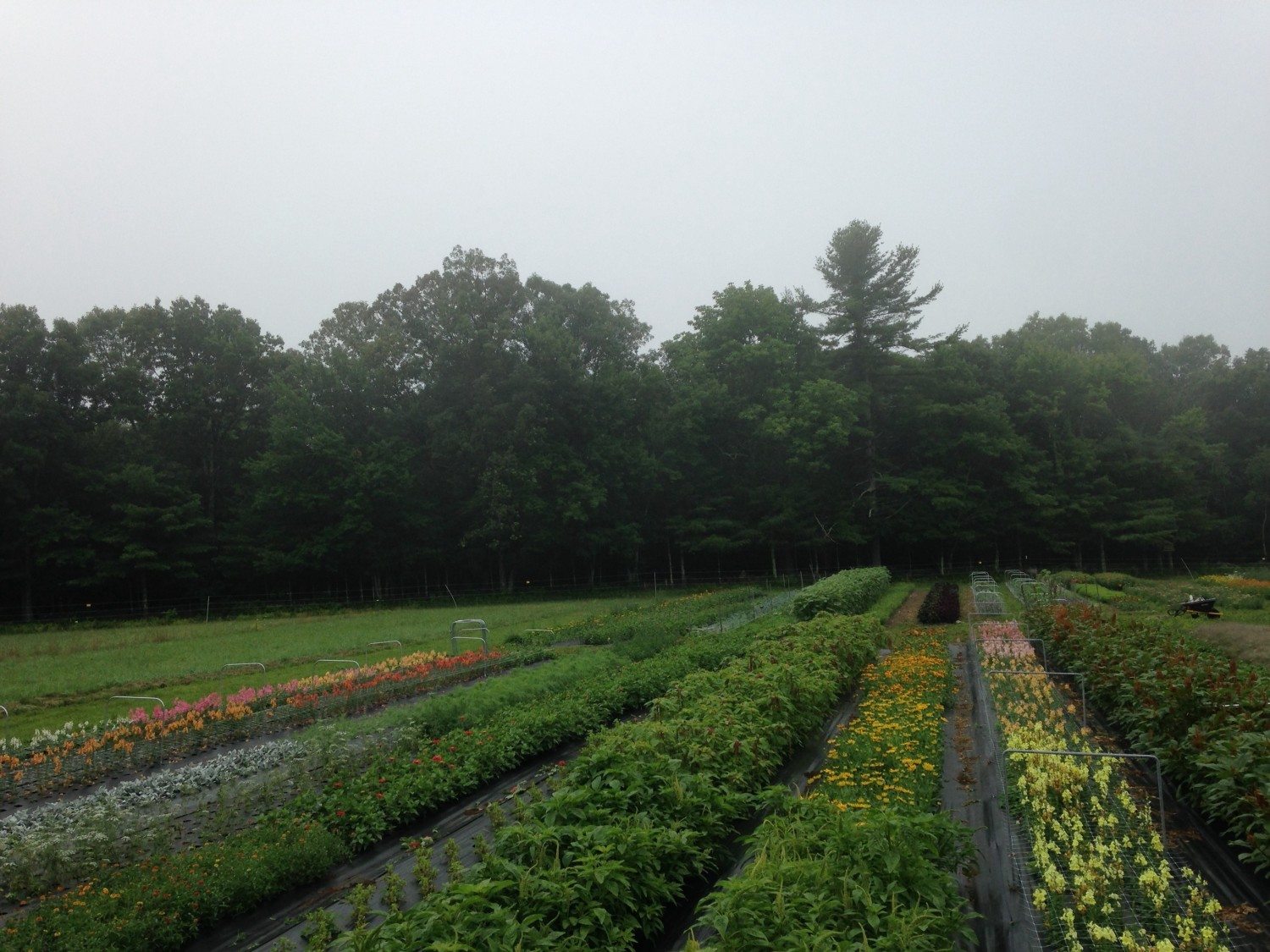 Grace: Erin, you’ve been such an inspiration and your passion for the sustainable flower movement is infectious. We’ve loved tracking along with you every growing season through your blog–the beauty coming off your farm is jaw-dropping! Thank you for this opportunity to share a bit of our story.
Grace: Erin, you’ve been such an inspiration and your passion for the sustainable flower movement is infectious. We’ve loved tracking along with you every growing season through your blog–the beauty coming off your farm is jaw-dropping! Thank you for this opportunity to share a bit of our story.
According to our research, the farm dates back to 1739 when Nathaniel Whitney, Eli Whitney’s grandfather, purchased 100 acres in Upton and bequeathed it to his son, Ephraim Whitney Sr. The land was farmed by the Whitneys late into the 1800’s. Today, much of the original fabric of this characteristic New England farm still exists– a central chimney farmhouse, expanses of pasture and hay fields divided by aged stone walls, sections of untamed woodlands and cart paths. A few years ago, our town (Upton) in partnership with the state of Massachusetts, preserved this land from development through an agricultural conservation provision. Under this new designation, we became the owners and stewards of a 38-acre parcel of land of which half are tillable.
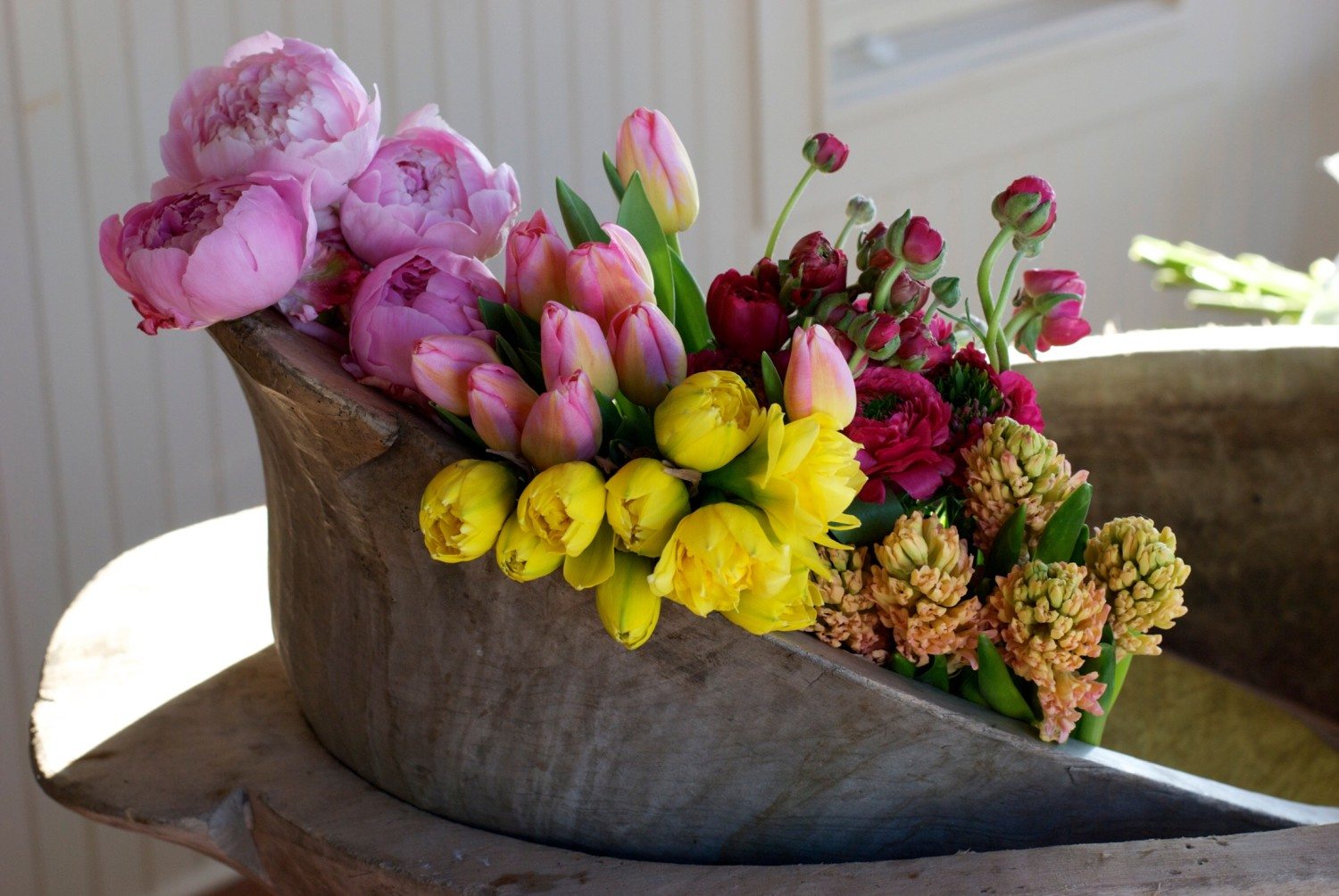
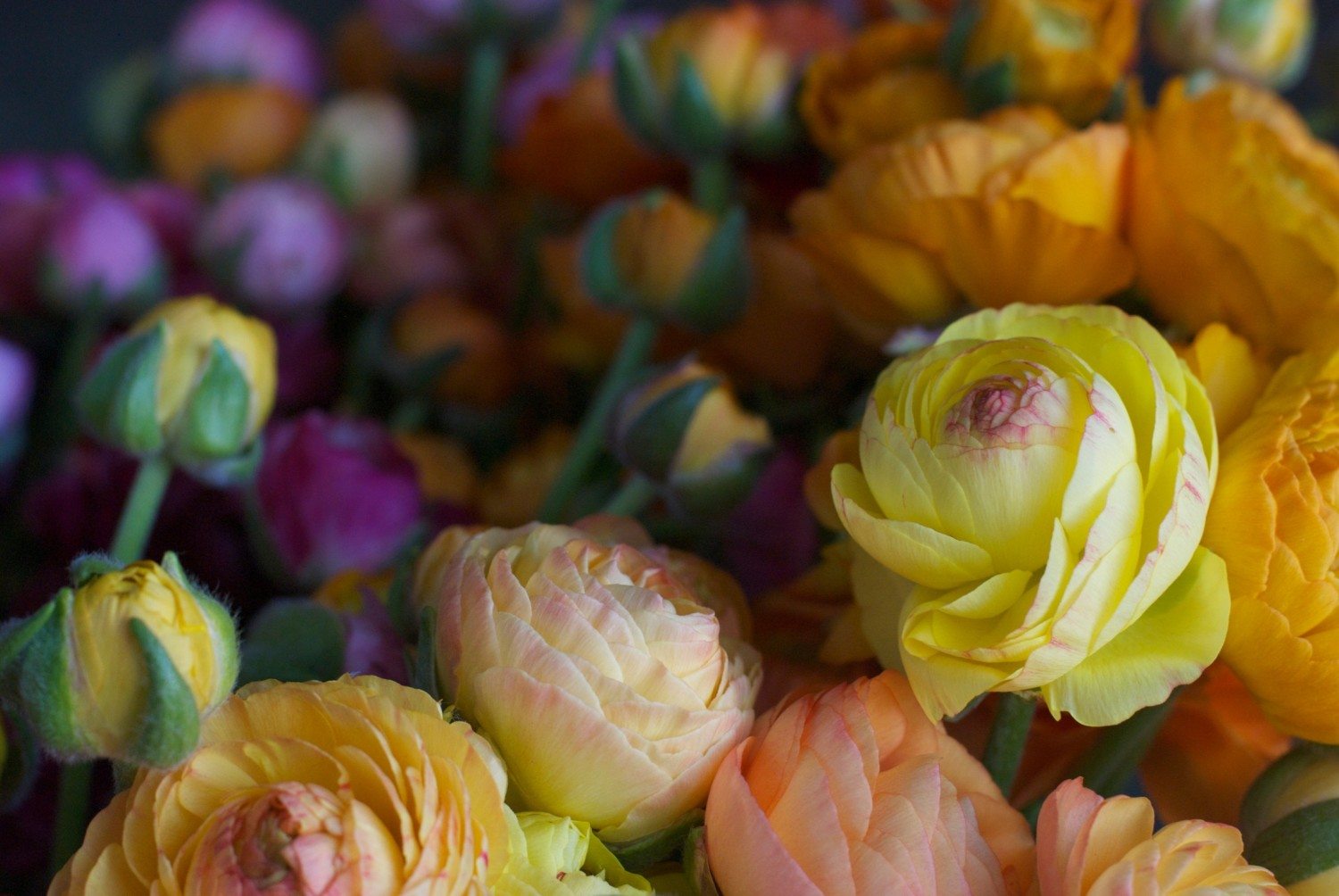 Erin: I’d love to know how you got started and the inner-workings of the family business. How are the labor and responsibilities divided?
Erin: I’d love to know how you got started and the inner-workings of the family business. How are the labor and responsibilities divided?
Grace: The road to operating our small farm business has been a circuitous one for sure. Four years ago, after years of working long and stressful hours on Wall Street, my job was cut in a round of sweeping layoffs. This turned out to be an incredible blessing because I had considered leaving banking for some time to pursue cultivating the land– meaningful work that I have loved from childhood summers spent working with my mother in her flower garden, and later into my high school years apprenticing at local organic farms. As I was leaving NYC and returning to Boston, my older brother Lyh-Hsin was wrapping up a job as a project manager for Habitat for Humanity in New Orleans and moving back home too.
This period of transition afforded us some space to think and reevaluate where we were headed vocationally. Armed with a bit of savings and having convinced my partner in crime (Lyh-Hsin) to pursue new opportunities with me, the door seemed open to take a calculated risk and give launching a farm business a shot. We decided early on to specialize in cut flowers to capitalize on my mother’s knowledge of growing them and as we recognized a need for more local and sustainably-grown flowers in Greater Boston. It took almost a year to put a cohesive business plan together and another couple of years to find our property in Upton. During this time, my other siblings and parents rallied around the dream and became partners and investors as well.
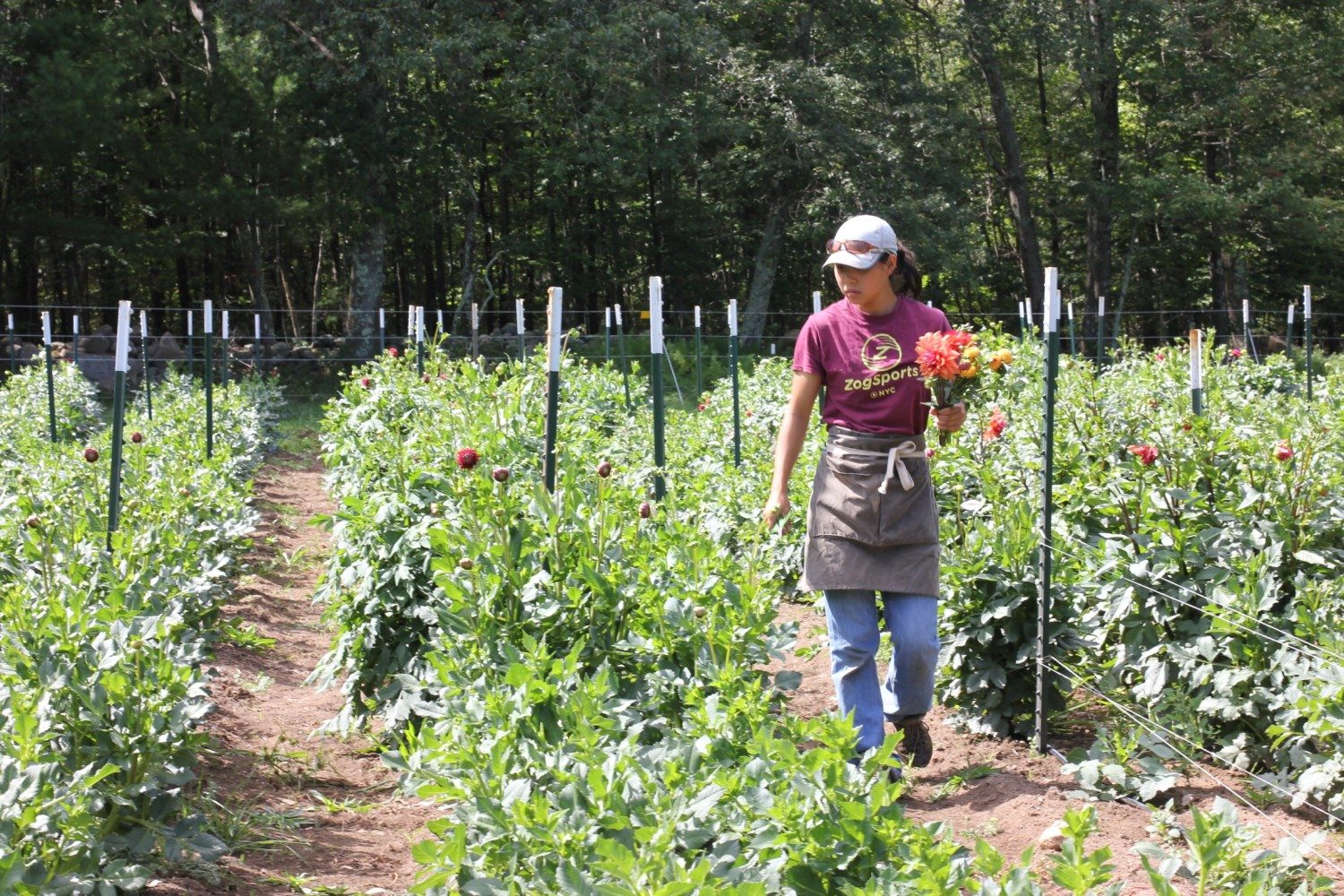
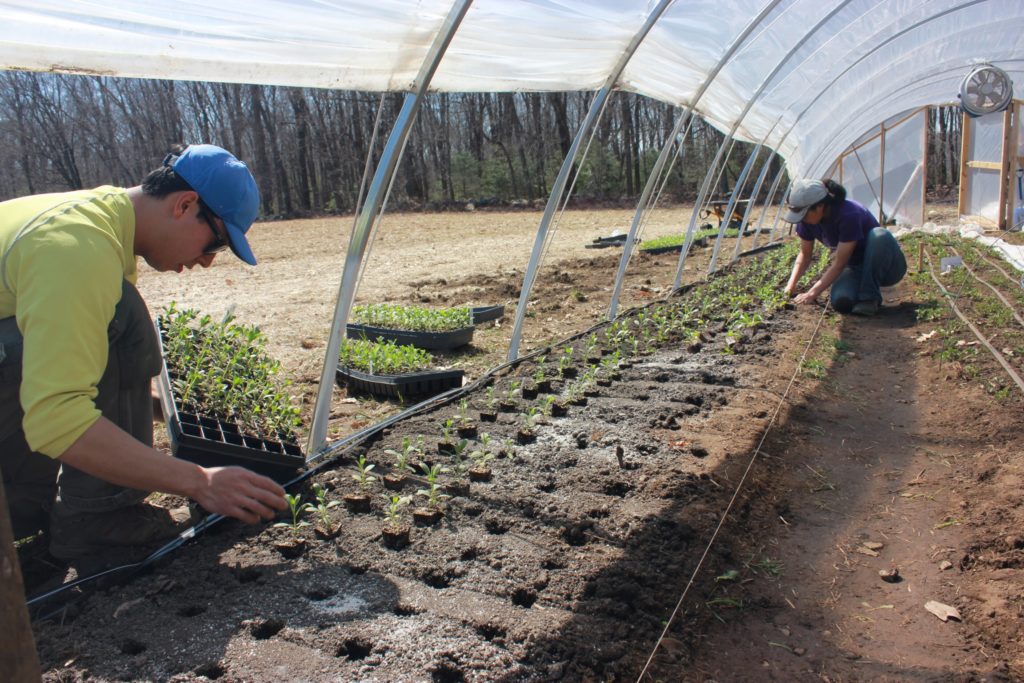 Today, Lyh-Hsin and I are at the farm full-time. Having dabbled in agricultural studies and farming apprenticeships, I have become the lead farmer and responsible for the crop planning, production and growing schedules. Lyh-Hsin, with his management and construction expertise, takes on our infrastructure and irrigation projects as well as our fertilization program. Our eldest brother, Lyh-Rhen, who has worked with floral companies in Boston, has become our in-house designer. He works 9-5 as an art director at another job and returns to the farm to put together our bouquets and to complete other design projects: website, print and online materials. My sisters–Joyce and Ping– are the other invaluable “forks” that round out our clan. While they both have full-time corporate jobs, they leverage their skills in finance and management to keep our operation afloat.
Today, Lyh-Hsin and I are at the farm full-time. Having dabbled in agricultural studies and farming apprenticeships, I have become the lead farmer and responsible for the crop planning, production and growing schedules. Lyh-Hsin, with his management and construction expertise, takes on our infrastructure and irrigation projects as well as our fertilization program. Our eldest brother, Lyh-Rhen, who has worked with floral companies in Boston, has become our in-house designer. He works 9-5 as an art director at another job and returns to the farm to put together our bouquets and to complete other design projects: website, print and online materials. My sisters–Joyce and Ping– are the other invaluable “forks” that round out our clan. While they both have full-time corporate jobs, they leverage their skills in finance and management to keep our operation afloat.
And of course, there’s Dad and Mom too, as well as our friend, Wendy. My mom maintains the greenhouse and makes sure all the seeds are started on time and seedlings are well watered. My dad is a fixture at the farmers’ market and makes all our CSA deliveries. Lastly, there’s Wendy – although we don’t share the same blood, Wendy has become an important member of the Fivefork family. In addition to organizing and coordinating special events and weddings, she’s usually the one behind the lens capturing all the beautiful images you see on our website or social media pages.
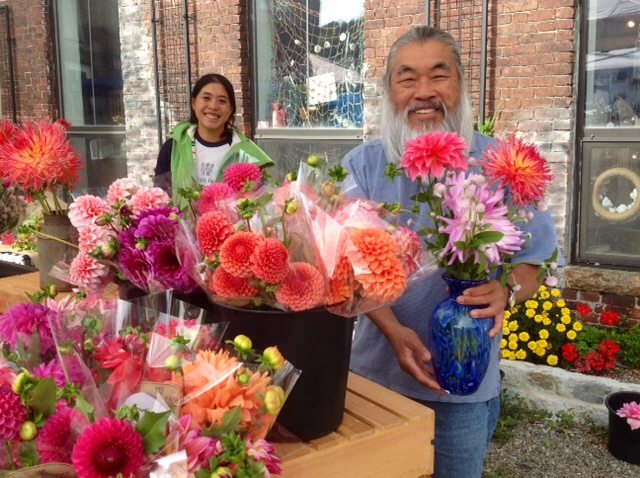
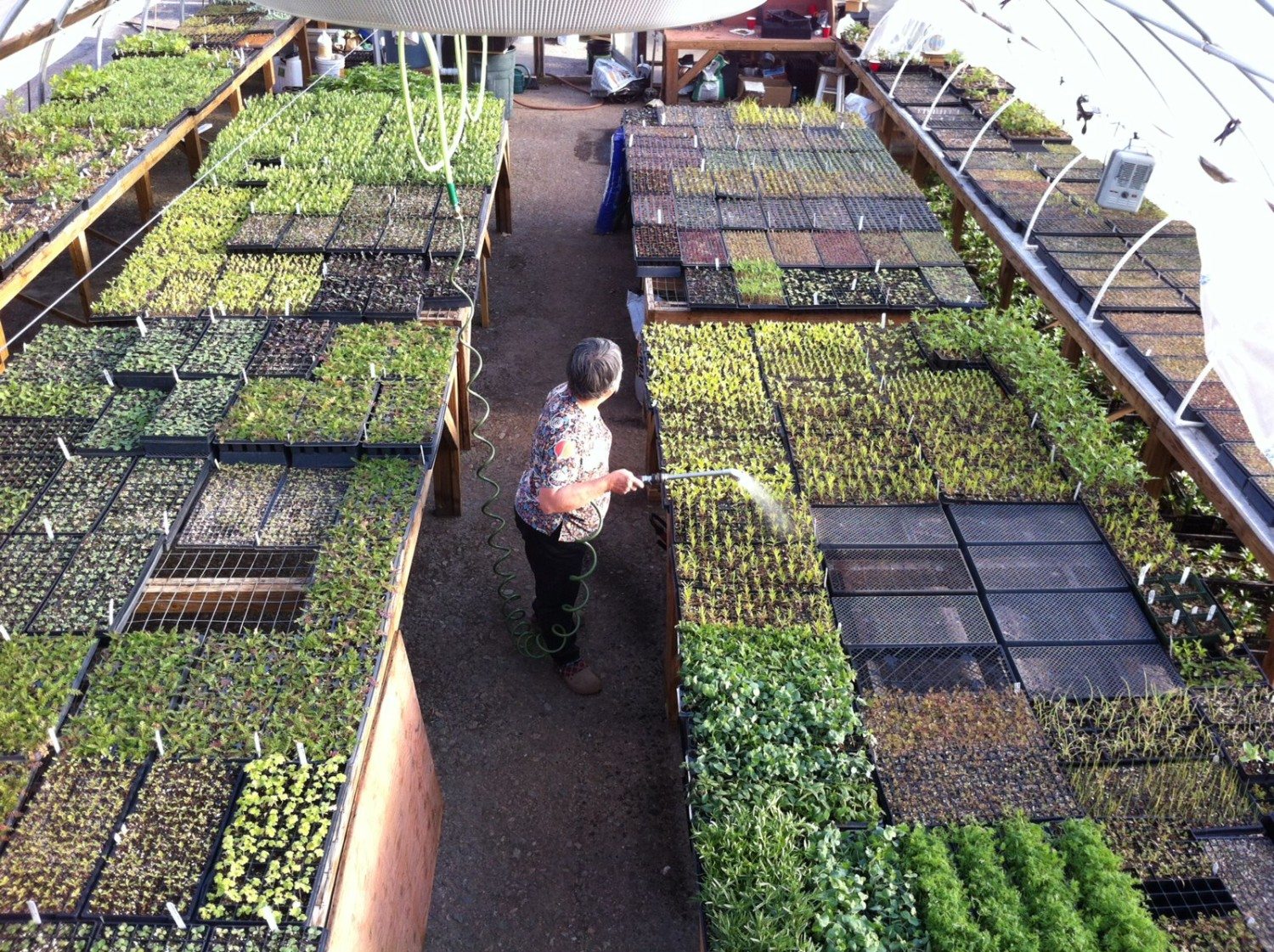 With so much going on, things most certainly get hectic at times, and we’ve all been stretched to learn new skills and adapt to a demanding schedule. But at the end of the day, it’s great to be able to take the farmer business hat off and enjoy all of the beauty with the people who know you best!
With so much going on, things most certainly get hectic at times, and we’ve all been stretched to learn new skills and adapt to a demanding schedule. But at the end of the day, it’s great to be able to take the farmer business hat off and enjoy all of the beauty with the people who know you best!
Erin: The photos I’ve seen of your farm online look like you do some serious intensive farming on your acreage. How much do you have in production and what are some of the varieties you have had the greatest success in growing?
Grace: While we have access to more land, we currently only cultivate 3 acres. We’re fortunate that we don’t have to squeeze everything really close together which has helped us minimize most instances of disease (crossing our fingers!).
With the amount of snow and cold temperatures we’ve experienced so late into the winter here in the Northeast, we’ve noticed that our early spring flowers (namely the anemones and ranunculus) seem to take an extra few weeks to get out of the gate. However, with the delayed start to the season, we also found that our spring crops have lasted well into the early summer. It was so difficult trying to negotiate between starting our summer plantings in the coveted hoop house space or ripping out the anemones and ranunculus that were still pumping out beautiful blooms.
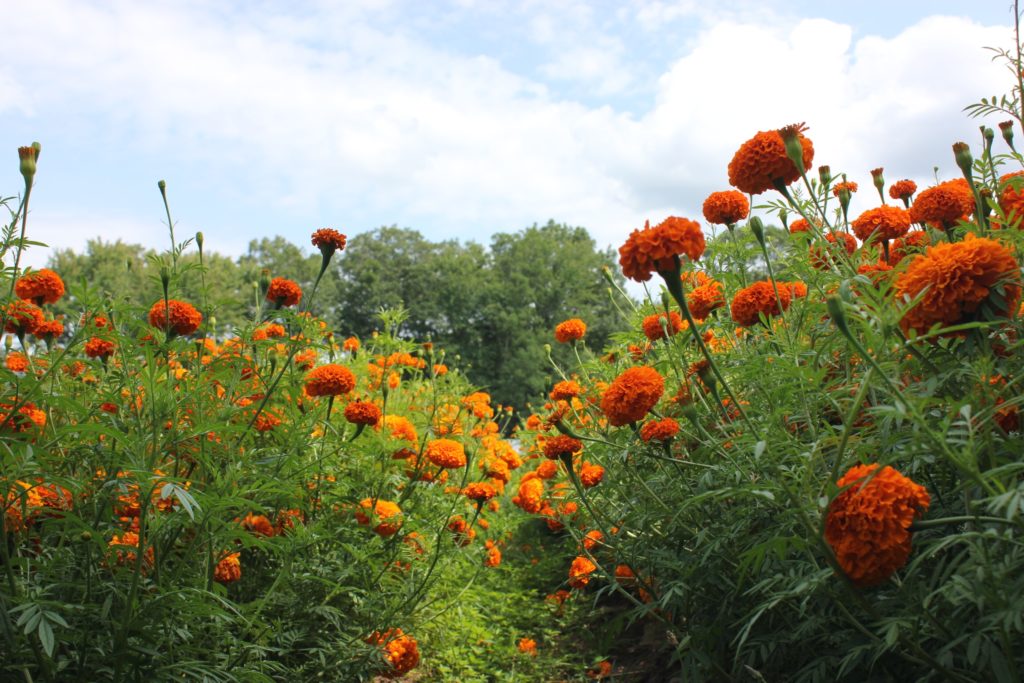 In terms of our successes, our dahlias are first to come to mind. Last season, we were focused on growing our dahlia stock. We got a little carried away with our access to land and ended up growing 100 different dahlia varieties (1,800 total plants) for both cut production and trials. We had little to no disease on the plants, and despite a two week influx of Japanese beetles and tarnished plant bugs, the plants went gangbusters and were prolific bloomers well into late October! We love dahlias so much that we’re setting a lofty goal of doubling our crop this season. Our favorite varieties are: Peaches ‘n Cream (not to be confused with “Peaches and Cream”), Bracken Sarah, Honeydew, Tempest, Snoho Beauty, Jomanda.
In terms of our successes, our dahlias are first to come to mind. Last season, we were focused on growing our dahlia stock. We got a little carried away with our access to land and ended up growing 100 different dahlia varieties (1,800 total plants) for both cut production and trials. We had little to no disease on the plants, and despite a two week influx of Japanese beetles and tarnished plant bugs, the plants went gangbusters and were prolific bloomers well into late October! We love dahlias so much that we’re setting a lofty goal of doubling our crop this season. Our favorite varieties are: Peaches ‘n Cream (not to be confused with “Peaches and Cream”), Bracken Sarah, Honeydew, Tempest, Snoho Beauty, Jomanda.
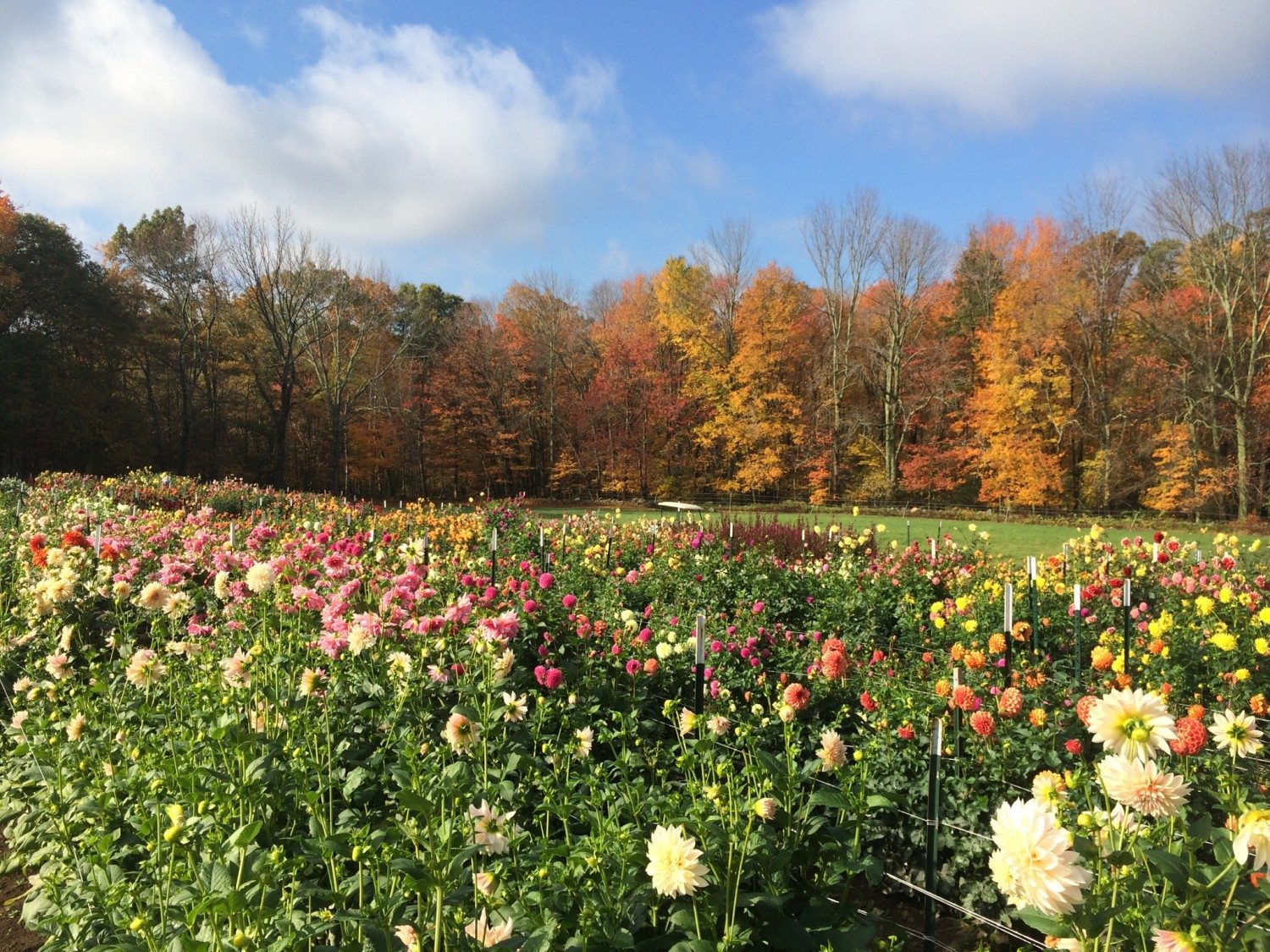
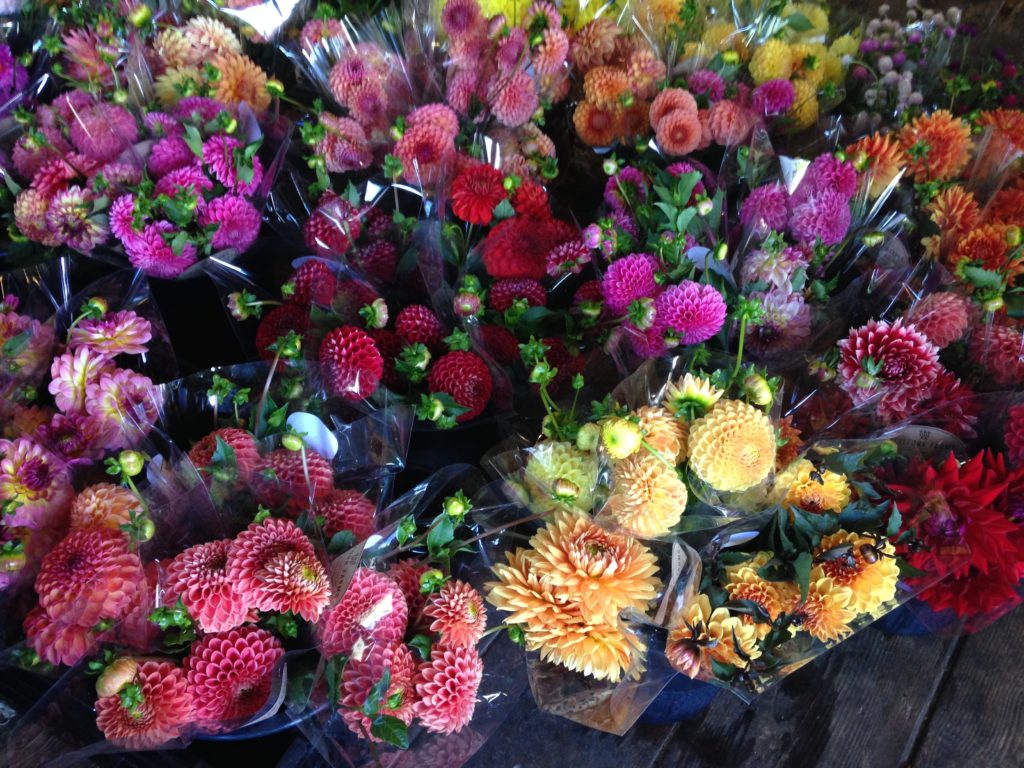 Erin: The snow accumulation you’ve had there in the East is incredible and you’ve had to get creative with snow removal. Holy cow! How much accumulation did you get this season? And how do you think this winter weather will affect your operation this year?
Erin: The snow accumulation you’ve had there in the East is incredible and you’ve had to get creative with snow removal. Holy cow! How much accumulation did you get this season? And how do you think this winter weather will affect your operation this year?
Grace: Our farm seemed to be in the path of every large storm this winter and we hit the jackpot with record snow accumulation of over 115 inches this season! Though we were battered week in and week out with snowfall, we were fortunate that the snow was light and fluffy which made it easier to deal with compared to the heavier wet snow we had to contend with last year. Unfortunately, the snow came just as we were constructing a new high tunnel so we had to stop construction. Beyond that, we’ve had to be vigilant about digging out and clearing the hoop houses and greenhouse to allow the snow to shed off and avoid collapse. We’re lucky that we have a lot of open space to use for snow piles!
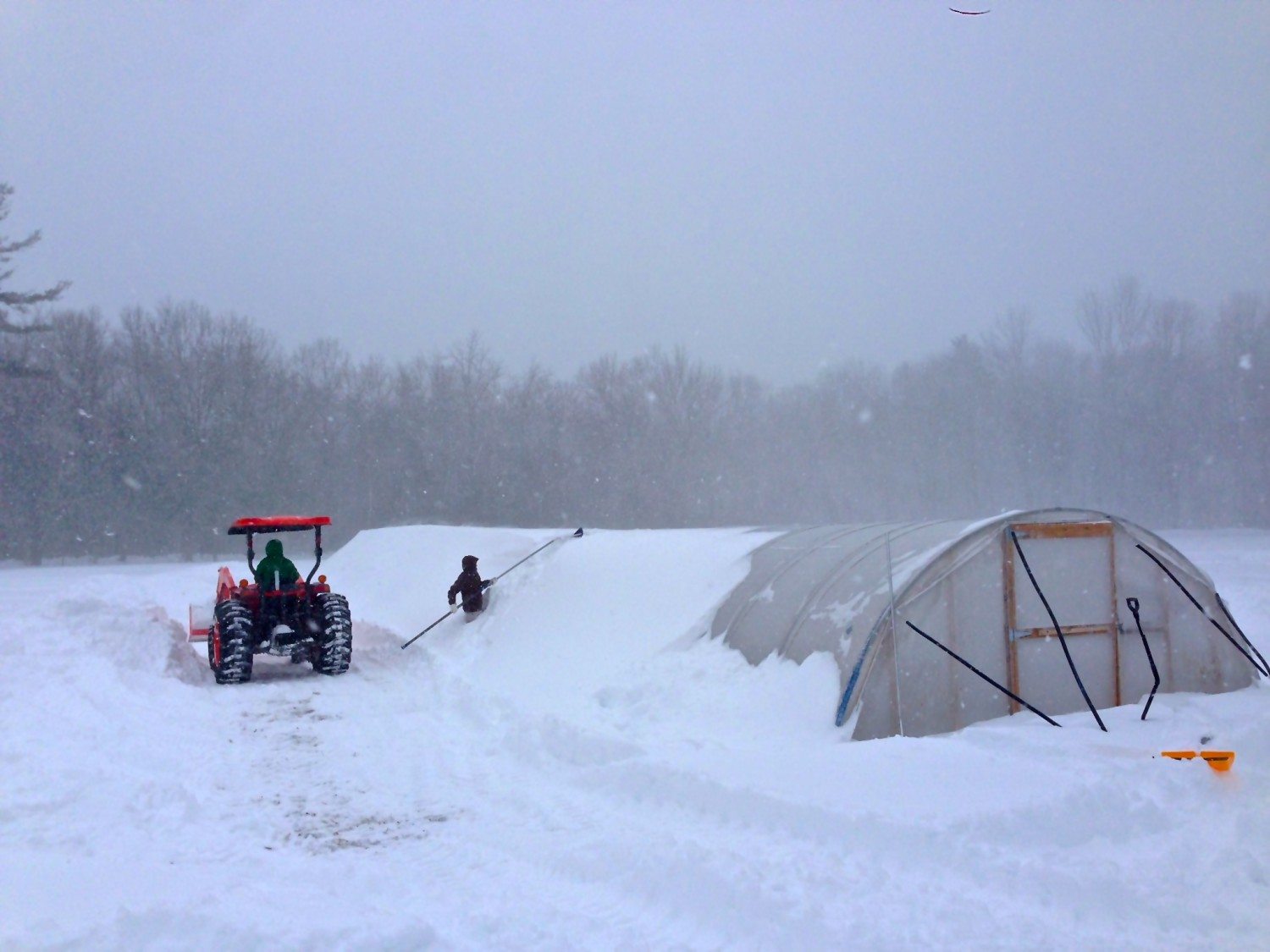 This winter, the more pressing concern has been the arctic temperatures we’ve experienced in conjunction with the snowfall. In the month of February, we only saw one day with temps above freezing. We were running our emergency heaters in the hoop houses through the whole month to help prevent damage to the ranunculus and anemones. They’ve done incredibly well and are just starting to throw up buds.
This winter, the more pressing concern has been the arctic temperatures we’ve experienced in conjunction with the snowfall. In the month of February, we only saw one day with temps above freezing. We were running our emergency heaters in the hoop houses through the whole month to help prevent damage to the ranunculus and anemones. They’ve done incredibly well and are just starting to throw up buds.
In the coming weeks we’ll be out on our tractor again, moving snow off our growing beds to help with thawing, with hopes of readying the beds for planting come mid-April. We learned last year that with this amount of snow so late in the season, drainage becomes an issue once the spring rainy season hits, and our fields turn into mudpits with streams running through them. We hope that we can control the runoff early by removing snow from the planting beds and improving some trenching work we started last year.
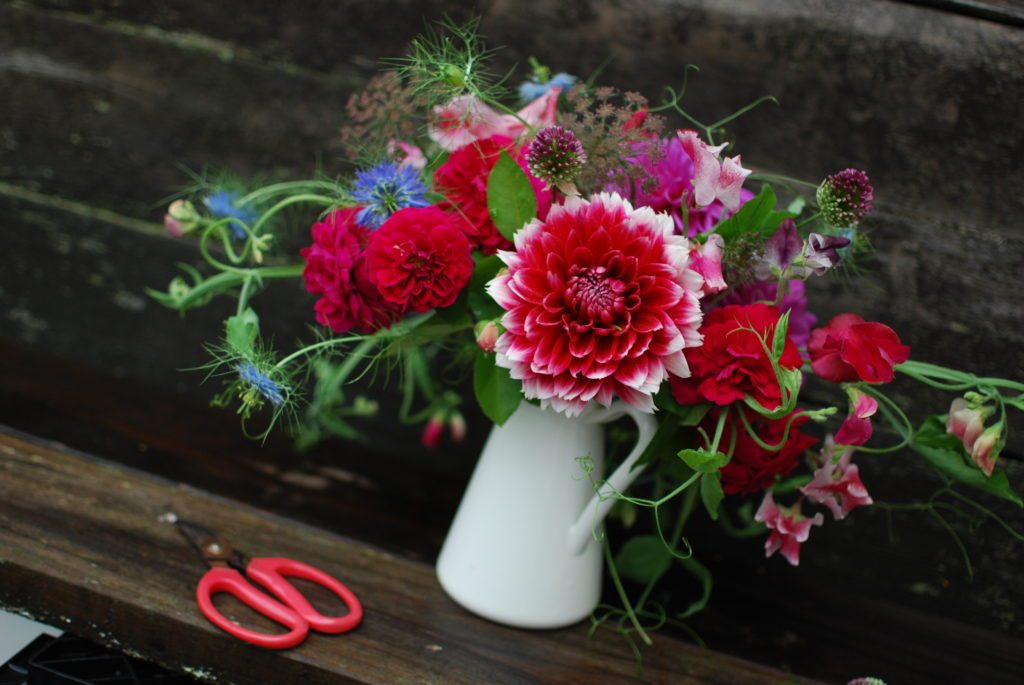 Erin: I noticed that your flower CSA is a big part of your operation. I love the fact you offer a custom made vase for each “shareholder” of your deluxe CSA share. Is that the main outlet for your flowers or do you also do sales to grocers or florists? Any advice you would give to new farmer-florists considering offering a flower CSA?
Erin: I noticed that your flower CSA is a big part of your operation. I love the fact you offer a custom made vase for each “shareholder” of your deluxe CSA share. Is that the main outlet for your flowers or do you also do sales to grocers or florists? Any advice you would give to new farmer-florists considering offering a flower CSA?
Grace: Our sales channel is a continual work in progress. As a farm in its infancy, the CSA has been integral to our success thus far by providing startup capital ahead of each growing season. In addition to our wonderful customers, we feel very fortunate to have connected with our CSA partners who host our weekly flower pickups. Our CSA partners are also small-business owners and they have been our greatest advocates and cheerleaders. It’s a wonderful feeling to know that our farm isn’t an isolated operation but truly a network of local supporters and friendships.
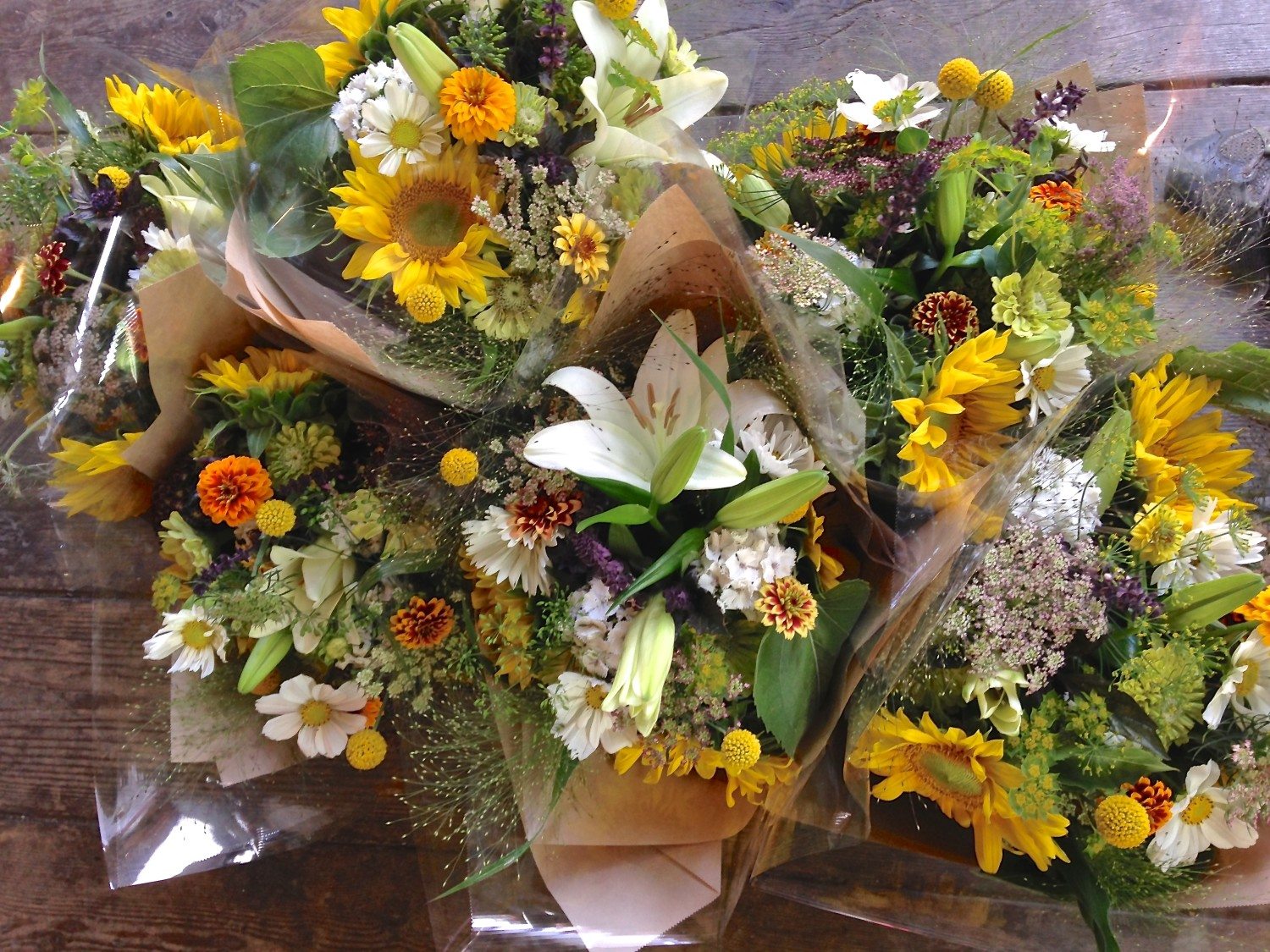 In addition to the CSA , we attend the Canal District Farmers Market once a week in the nearby city of Worcester and sell wholesale to stores, florists and event designers. We take orders off our weekly availability list and run a delivery route through the Greater Boston area at least twice a week. This year, we’re also exploring sales to a couple of Whole Foods stores.
In addition to the CSA , we attend the Canal District Farmers Market once a week in the nearby city of Worcester and sell wholesale to stores, florists and event designers. We take orders off our weekly availability list and run a delivery route through the Greater Boston area at least twice a week. This year, we’re also exploring sales to a couple of Whole Foods stores.
As for advice for starting a CSA — planning is key and succession sowing is a must. We aim to grow a lot of variety so that no two bouquets or shares are the same during our distribution. This can be a considerable challenge without proper planning, but it pays off when our members are given a unique experience each week and introduced to flowers they’ve never seen or different herbs and greens they never thought of using in floral designs. Having a good seeding schedule that is diversified in variety and color and sticking to it to ensure you’re never out of key material is paramount!
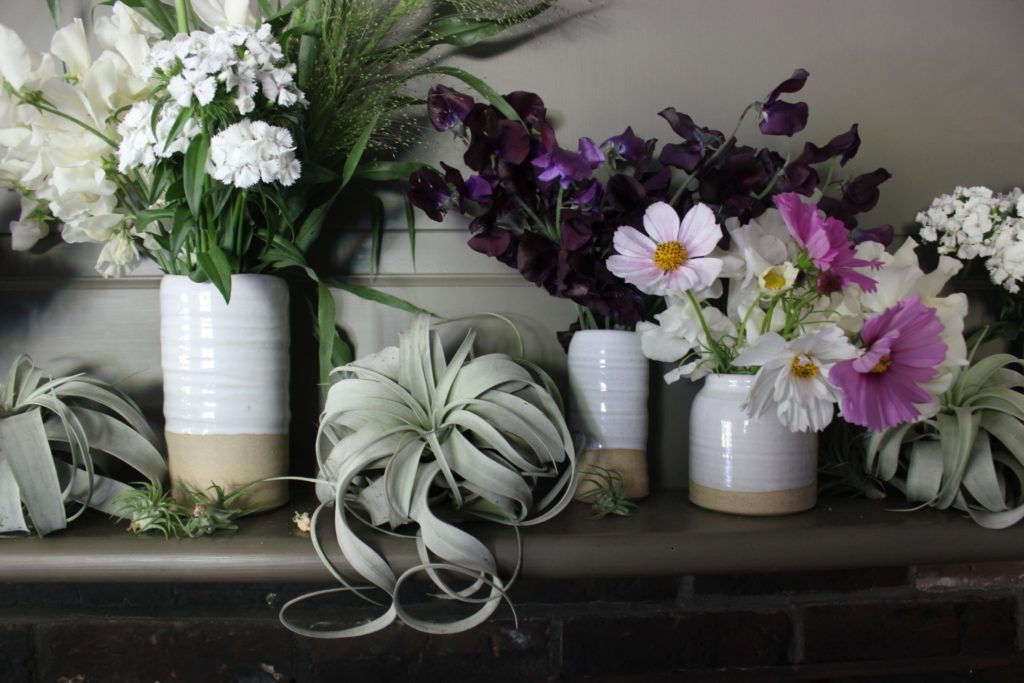
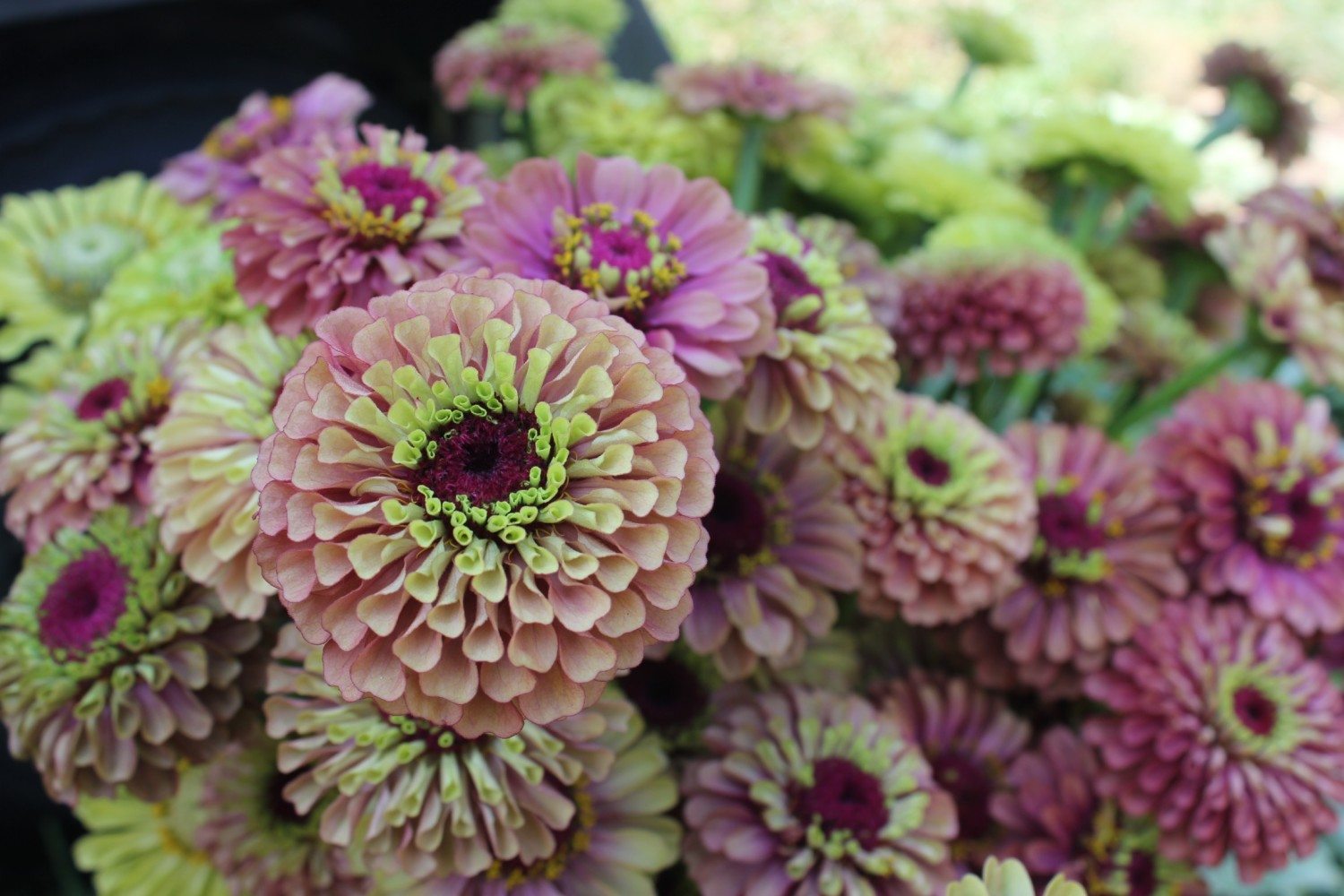 Erin: I understand you’ve collaborated with the Ladies of Foret, is that right? Tell me more about that and any other big plans you have for your flower farm this season.
Erin: I understand you’ve collaborated with the Ladies of Foret, is that right? Tell me more about that and any other big plans you have for your flower farm this season.
Grace: We love Erin and Rose! In addition to being truly talented designers, we’re struck by how much they want to learn about the whole process of growing flowers–from seeding to harvest–to the point of volunteering to help us with chores on the farm this past fall. We’re lucky to have networked with so many wonderful florists and design studios who, like Foret, are also advocates of the local flowers movement and have become such wonderful friends. Their support and curiosity makes us strive for greater knowledge and passion for what we do.
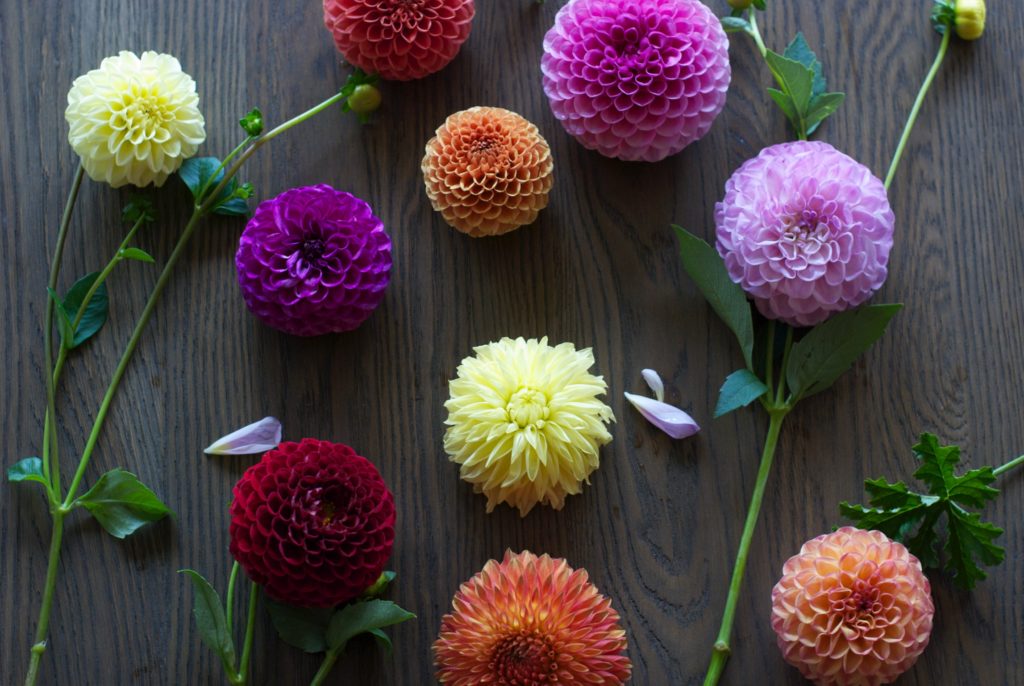 As for our plans this season, we’re going to carve out some time to get our woody and perennial plantings started. More peonies are on the schedule, as are viburnums, hydrangeas, phloxes, and honeysuckles, to name a few! Beyond experimenting with new varieties and how they deal with the fickle New England weather, we’re also hoping to get an apprenticeship program off the ground and play our part in raising young farmers!
As for our plans this season, we’re going to carve out some time to get our woody and perennial plantings started. More peonies are on the schedule, as are viburnums, hydrangeas, phloxes, and honeysuckles, to name a few! Beyond experimenting with new varieties and how they deal with the fickle New England weather, we’re also hoping to get an apprenticeship program off the ground and play our part in raising young farmers!
Erin: Wow that’s great! Thanks so much for sharing your amazing story. I wish you the very best this growing season!
Connect with Fivefork Farms:
Web
Pinterest
Instagram: @fiveforksfarm
Facebook
Twitter: @FiveforkFarms
Photo 1 by Michelle Martin. All other photos courtesy of Fivefork Farms.

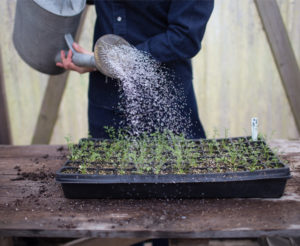
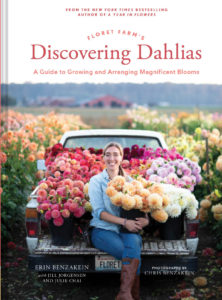
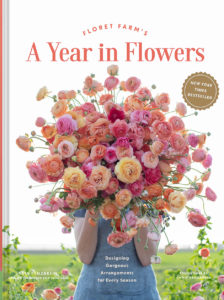
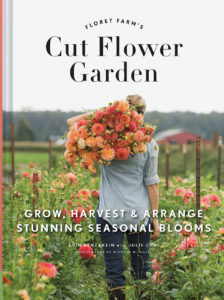

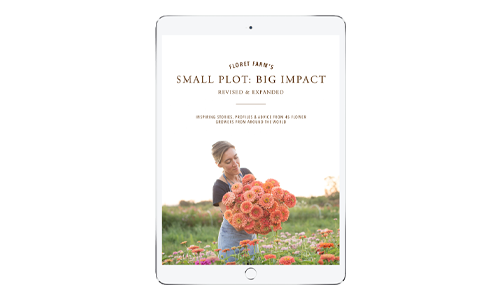
Mara-The Farm at Oxford on
What a great interview, loved it! I’ve been following FiveFork on IG this winter, marveling at the snow loads and how the FiveFork family just kept on going with clearing the hoops! We somehow got ‘spared’ this year with snow, but last year we had some record breakers for the state of PA.
Also loved reading about the dahlia overload…I share that obsession, cant.stop.ordering. So many varieties, so little time.